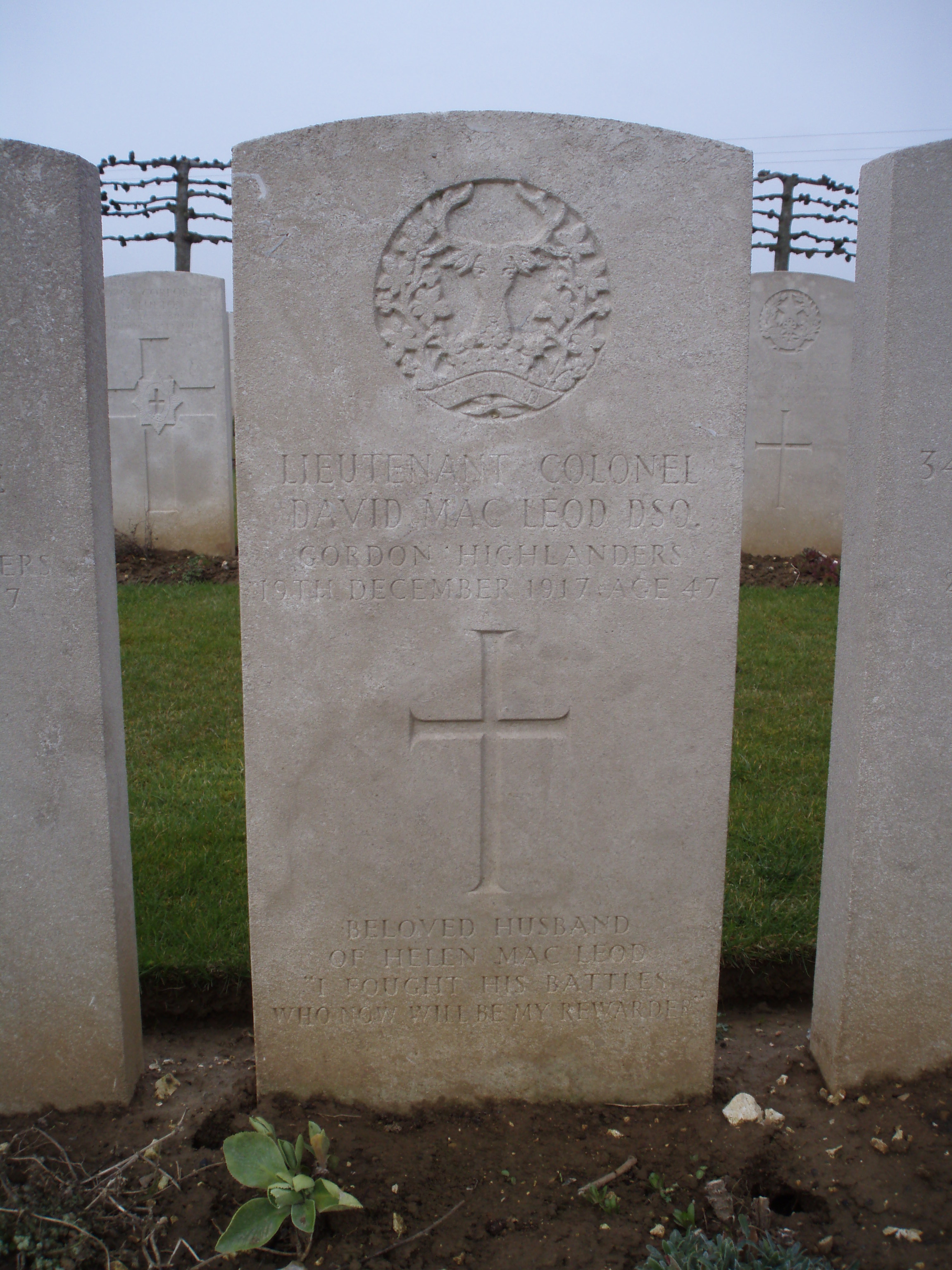Son of the late William MacLeod, of Arnol, Isle of Lewis; husband of Helen MacLeod, of 15, Marina Court, Bexhill-on-Sea. ref. South African Roll of Honour 1914-1918. He enlisted in the Seaforth Highlanders before he was quite sixteen years of age. In 1895, volunteering for special service in connection with the organisation of the new Egyptian army, he went out as one of the small band of Sergeant Instructors (of whom Lewis provided two) immortalised by Kipling in "Pharaoh and the Sergeant". The task of turning the spiritless Fellahean into fighting soldiers was at the time deemed hopeless by many, but the British instructors proved themselves "a charm for making riflemen from mud". With the young army thus created Major Macleod served throughout Lord Kitchener's re-conquest of the Sudan. He was present at the Battle of Fisket (June 1896) and served in the Nile Expeditions of 1897 and 1898. He fought in Sir Hector Macdonald's famous Brigade at the Battles of Atbara and Omdurman. In admiration of the perfect steadiness and gallant conduct of the 2nd Egyptians (trained by Major Macleod) at Omdurman, Stevens, in "Wish Kitchener to Khartoum" described them as "the best trained and disciplined battalion in the world". During 1899, Major Macleod served on the White Nile and in Khordofan with the forces pursuing the Khalifa. For his services he was mentioned in Lord Kitchener's despatches, received the Khedive's Medal with six clasps, the Queen's Sudan Medal, the Medal for Distinguished Conduct in the Field and as a further reward, a commission in the Cameron Highlanders. In the South African war, he served continuously for over two years, seeing service in Cape Colony, the Free State and the Transvaal, where he was wounded and again mentioned in Lord Kitchener's despatches for distinguished conduct in the field at the same time receiving the Queen's Medal with three clasps and the King's Medal with two clasps. Towards the end of the war, he joined the South African constabulary, popularly known as Baden Powell's Police. When peace was declared, he was made a District Commandant and a Justice of the Peace. After two years with the South African Constabulary, he volunteered for active service in Somaliland and served for about four years with the King's African Rifles in Central Africa, British East Africa and Uganda. During that period, he took part in the Souk Punitive Expedition, and served with the Nandi Field Force. He receive the African General Service Medal with two clasps and five years after receiving his commission, was specially promoted to the rank of Captain in the Gordon Highlanders in recognition of his varied services in the field. In 1907, he again accepted service in the Sudan, to organise and command the Camel Corps Training School at Khartoum; and he saw service with the Camel Corps on the Blue Nile in 1908. After being stationed with his battalion (2nd Gordons) for two years in India, he was appointed to the Depot in Aberdeen and retired early in 1914, after twenty-seven years' service. Later in the year, on war being declared, he volunteered his service and was appointed to the 8th Gordons with the rank of Major. He served in the field in France from the beginning of May until 25th September 1915, when he was seriously wounded at the storming of the Hohenzollern Redoubt. |
